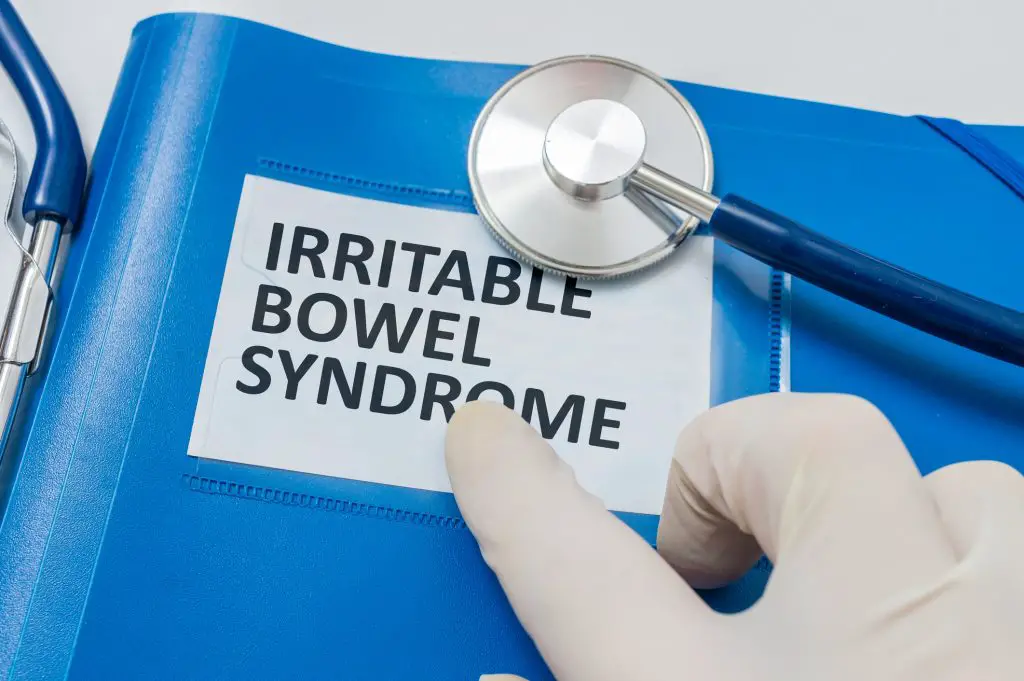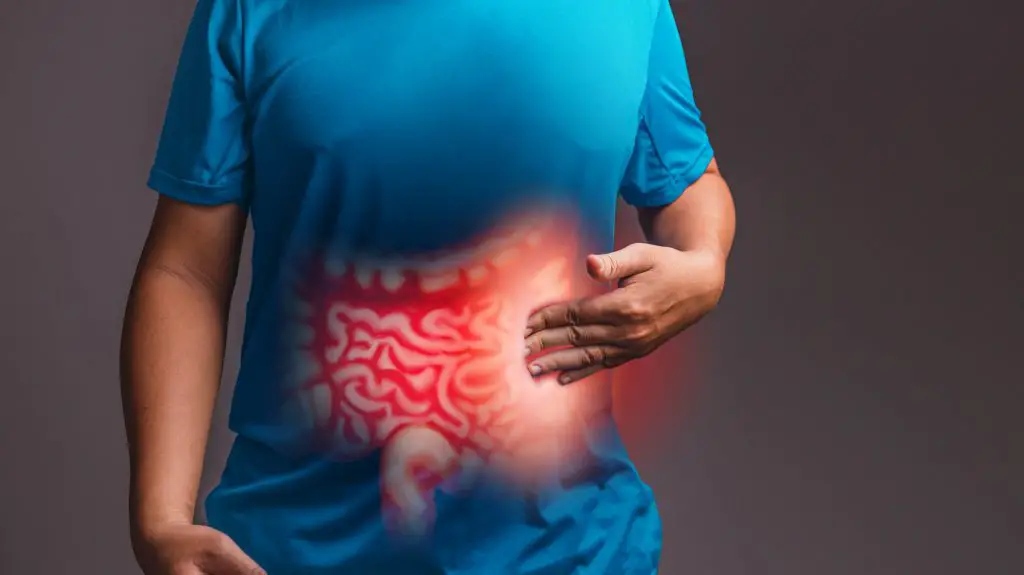IBS explained: causes, symptoms, and treatment

As an affiliate, we may earn a commission from qualifying purchases. We get commissions for purchases made through links on this website from Amazon and other third parties.
IBS can be incredibly frustrating and embarrassing for those who suffer from it. The good news is that there are treatments available, but you first need to understand what IBS is and what causes it.
Irritable bowel syndrome, sometimes known as IBS, is a chronic (long-term) illness that affects the large intestine. IBS affects one in every five persons in the United Kingdom, however, it is three times more frequent in women.
In this article, we delve into this complex subject of IBS explained for those wishing to know what it is, what causes it, and more importantly how to deal with it.
It can begin at any age, although it is most common in your teens or twenties. Depending on the severity and frequency of your IBS attacks, the impact on your lifestyle can be significant. We’ll look at some of the most frequent causes and symptoms, as well as how to manage your IBS.
IBS symptoms
Stomach pain or cramps is one of the most prevalent IBS symptoms, which are often worsened after eating and subsides after bowel movements.
These are some of the other most common symptoms:
- bloating
- flatulence
- diarrhea
- constipation
You might also feel nauseated, tired, and have trouble controlling your bowel habits (bowel incontinence) and urinating (urination incontinence) (urinary incontinence).
Both men and women experience these symptoms. Some women, however, feel pelvic discomfort and sex pain, as well as more acute symptoms at specific parts of their menstrual cycle. IBS can cause heavier and/or more painful periods in women.
Consult with your doctor
IBS is usually not serious and does not put you at risk for bowel cancer. It can, however, have a substantial impact on your overall quality of life. Many of the symptoms of IBS overlap with other disorders that affect your bowel or reproductive systems in women; some of these conditions are significant and require treatment.
As a result, if you’re concerned about your symptoms or finding it difficult to control them, consult your doctor.
If you observe a hard mass or swelling in your belly, bleeding from your anus, bloody stools, or unexplained weight loss, you should consult your doctor.

Getting a diagnosis of IBS
Because there is no conclusive test for IBS, diagnosing it usually entails ruling out all other potential reasons for your symptoms.
Your doctor will inquire about your symptoms and medical history, as well as perform an abdominal examination. They may next suggest one or more tests to rule out other illnesses that cause symptoms that are similar to IBS. Blood tests, stool tests, and minimally invasive procedures such as a flexible sigmoidoscopy to examine the lower part of your colon or a colonoscopy to evaluate your entire colon are all possible options.
- Flexible sigmoidoscopy and a colonoscopy both involve introducing a thin, flexible, telescope-like tube into your colon via your back channel with a camera and a light at the end (rectum). This enables your doctor to examine the inside of your colon for abnormalities.
- Diverticulitis and inflammatory bowel disease, which include Crohn’s disease and ulcerative colitis, coeliac disease, and gut infections are among illnesses that can be ruled out with these tests. IBS-like symptoms can also be caused by pancreatitis, which should be tested out.
Other disorders affecting the reproductive organs in women, such as endometriosis and ovarian cancer, can elicit IBS-like symptoms. Your doctor may need to rule out these disorders as well, depending on your symptoms.
Blood tests, a vaginal and/or abdominal ultrasound scan, and a minimally invasive procedure to take a tissue sample (biopsy), such as a needle biopsy or laparoscopy, can all be used to rule out ovarian cancer.
A pelvic examination, blood tests, a pelvic ultrasound scan, and laparoscopy can all be used to rule out endometriosis.
Types of IBS
Based on your symptoms, IBS can be classified into three types.
- IBS-C is the most frequent type of IBS, with C standing for constipation. IBS-C is a type of IBS that causes constipation more often than diarrhea.
- IBS-D, on the other hand, refers to IBS that produces more diarrhea than constipation.
- IBS-M is IBS that produces mixed bowel habits, which means that at least a quarter of your bowel movements are constipated and at least a quarter are on days when your bowel habits are disrupted.
What causes IBS?
Despite its prevalence, the exact cause of IBS is still unknown. However, there are several theories that have been put forth to explain the condition.
One theory suggests that IBS is caused by a dysfunction in the brain-gut axis or the communication between the brain and the gut. This can lead to problems with motility, or the movement of food through the digestive tract.
Another theory suggests that IBS is caused by an overgrowth of bacteria in the small intestine. This excess bacteria can produce gas and cause bloating, cramping, and diarrhea.
Finally, some experts believe that IBS may be triggered by stress or other psychological factors. While the exact cause of IBS remains a mystery, researchers continue to investigate potential causes in hopes of finding a cure for this debilitating condition.

Elements that can trigger IBS
While the exact cause of IBS is unknown, there are a number of factors that can trigger the condition. For instance, certain foods and beverages can trigger IBS symptoms, including dairy products, wheat, spicy foods, carbonated drinks, and alcohol.
Stress, anxiety, depression, and a history of IBS in the family are also common triggers for IBS, as it can lead to muscle tension and changes in hormone levels that can disrupt the digestion process.
IBS is more common in women, as previously stated. If you have diverticulitis or a gastrointestinal illness like gastroenteritis, you’re at a higher risk.
Furthermore, other health conditions, such as celiac disease and inflammatory bowel disease, can also trigger IBS. While there is no cure for IBS, Identifying and avoiding triggers can help to manage the condition.
Avoid highly processed foods, fried foods, dairy products (excluding yogurt), caffeine, fizzy drinks, foods high in fructose, and foods containing the sugar substitutes sorbitol or xylitol can all provoke or worsen IBS symptoms (eg sugar-free chewing gum).
Antibiotics, antidepressants, and sorbitol-containing drugs are among the medications that might cause or worsen IBS symptoms (eg ibuprofen).
Treating IBS
Although there is no cure for IBS, there are some things you may do to assist manage and easing symptoms.
Applying a heat pack or a hot water bottle wrapped in a towel to your belly during an episode of IBS can help ease pain and lessen muscle spasms. Certain types of tea can assist with bloating, but some teas might aggravate your symptoms, so stick to IBS-friendly teas like peppermint, fennel, and anise.
Relaxation practices, such as yoga, meditation, and deep breathing exercises might help avoid or ease your symptoms, as stress can cause or intensify an episode of IBS.
Identifying foods that trigger IBS can also assist to prevent or lessen the intensity of an attack. Foods high in FODMAPs (fermentable oligo-, di-, monosaccharides, and polyols) can cause IBS in certain people.
Keep a food journal and talk to your doctor or a nutritionist about ways to avoid items that you suspect are causing your symptoms; they may recommend alternatives or substitutes for the foods found to ensure your diet remains healthy and balanced.
IBS can be relieved by eating smaller meals more frequently, following to a regular mealtime schedule, exercising regularly, taking probiotics, and stopping smoking.
Psychological and medical treatments
If lifestyle modifications aren’t working or providing adequate relief from your symptoms, talk to your doctor about other options, which may include medication. To ease intestinal cramps, your doctor may prescribe an antispasmodic medicine, bile acid binders to minimize diarrhea, osmotic laxatives to relieve constipation or certain antidepressants that are known to relieve IBS symptoms (eg citalopram or amitriptyline).
If medicine fails to control your IBS and/or stress, anxiety or depression are suspected to be contributing to your symptoms, your doctor may recommend mental-health therapies. Biofeedback, cognitive-behavioral therapy (CBT), and hypnosis are some examples.
Living with IBS
Managing your IBS on a daily basis can have a negative impact on your mental health, which can exacerbate your symptoms. As a result, it’s critical to talk to people you trust about how you’re feeling and how you’re dealing.
This could be talking to your family, friends, GP, or other healthcare providers, or seeking help from the IBS Network, the UK’s official IBS charity, which runs local support groups.
You can continue to live a full life with IBS with the correct support, lifestyle adjustments, and/or medical or mental health therapies.
In conclusion
IBS, or irritable bowel syndrome, is a common digestive disorder that affects millions of people worldwide. The exact cause of IBS is unknown, but it is thought to be related to a combination of factors, including psychological stress, diet, and gut bacteria.
Some research suggests that IBS may be caused by an overgrowth of bacteria in the small intestine. These “bad” bacteria produce toxins that can damage the lining of the intestine, leading to inflammation and pain.
Other studies have shown that people with IBS are more likely to have psychiatric disorders such as anxiety and depression. These conditions can also contribute to gut problems by affecting the way the brain and gut communicate. While there is no cure for IBS, many treatments are available to help manage symptoms and improve quality of life.
A quick reminder ..
Probiotics.tips aim to provide the most up-to-date information, help, and advice for YOU to make informed decisions. If you are unsure or uncertain and require more clarity, please reach out to us and we will gladly come back and advise you as best we can.
The best means to reach us is via email at info@probiotics.tips or fill out the form on our Contact Us page – click here.
Probiotics.tips
About Us
Our goal is to empower you with concise probiotic guidance for a healthier gut. With expert advice, we provide the knowledge to improve your well-being and navigate the world of probiotics efficiently, ensuring you achieve optimal gut health.
- Can You Take Probiotics While Water Fasting?
- Does Fasting Help Microbiome Diversity and Functionality?
- Does Fasting Help Your Bowels
- Does Fasting Help Probiotics? Understanding Gut Health Benefits
- Does Fasting Help the Gut: Understanding the Impact on Digestive Health
Disclaimer
As an affiliate, we may earn a commission from qualifying purchases. We get commissions for purchases made through links on this website from Amazon and other third parties.
Check these out on Amazon









